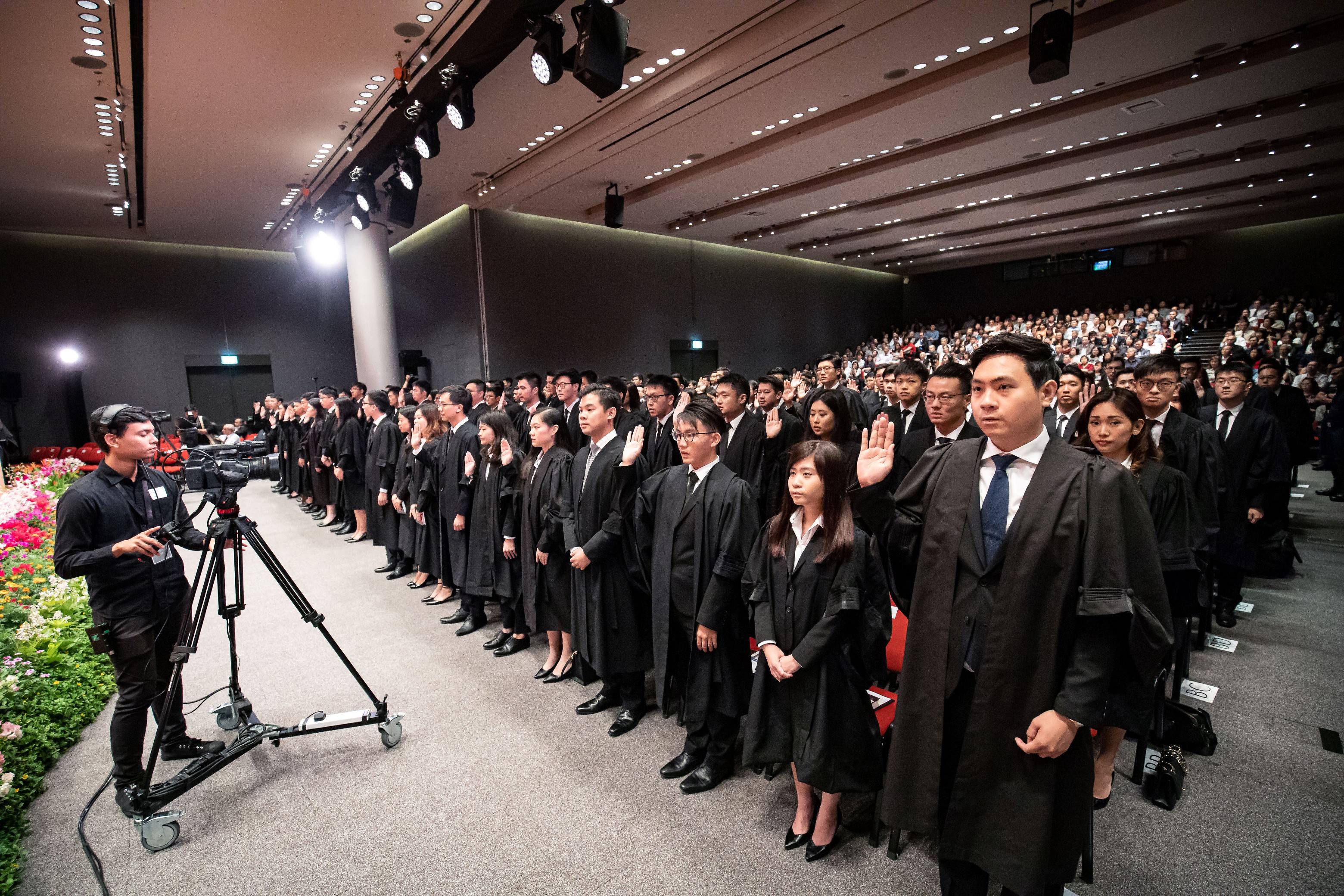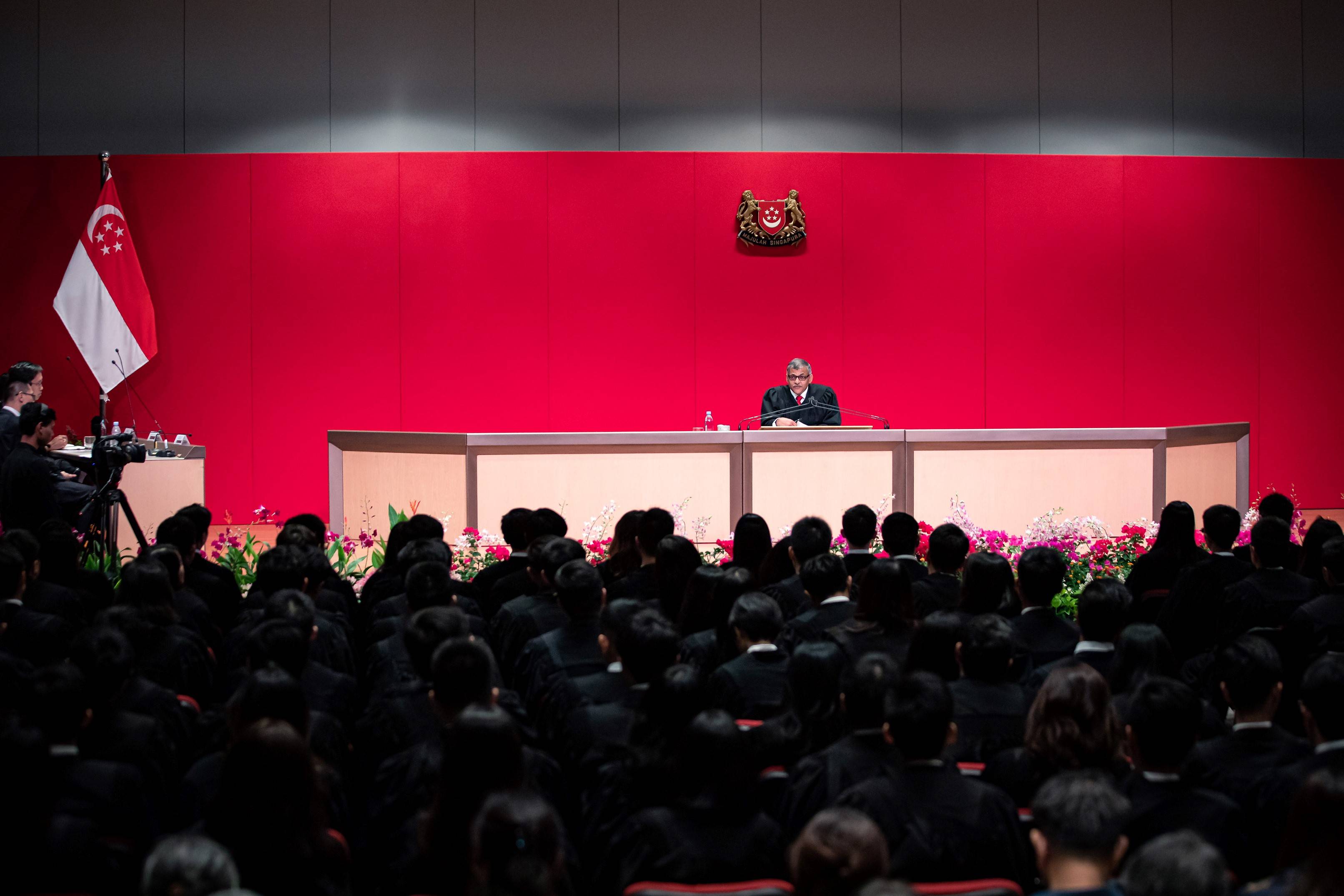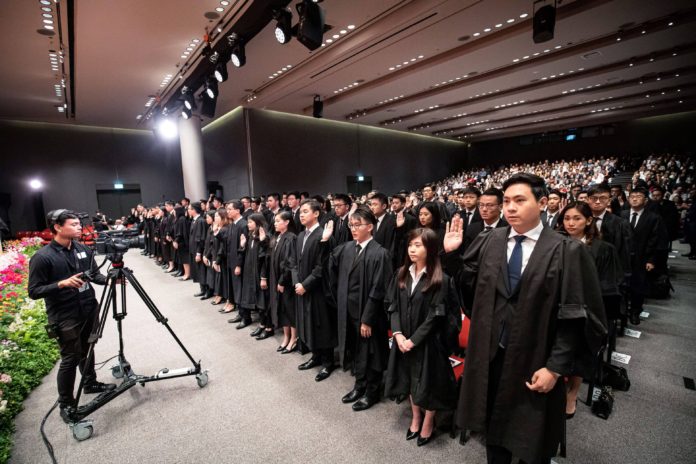SINGAPORE: Technology is already beginning to displace lawyers from some areas of practice, said Chief Justice Sundaresh Menon on Tuesday (Aug 27) as he urged the legal profession to “reskill” to adapt to this new reality.
“The future of the legal profession, like that of our nation, hangs on the ability and willingness of its members to reskill and relearn,” he said.
“Technology is already beginning to displace lawyers from areas of practice, especially those involving the more routine areas which are more susceptible to automation.”
Speaking at the annual Mass Call at the Supreme Court auditorium, Chief Justice Menon gave the example of a free online service recently launched by OCBC that can generate a will in less than 10 minutes.
“Such developments can be expected to have a significant impact on demand for wills and probate work, which has long been a mainstay for smaller practices,” he said.
“Apart from this, some aspects of due diligence and contract review, which has long formed the bulk of the work performed by junior lawyers, can now be conducted more quickly and accurately by natural language processing and machine learning tools.”
READ: Rise of the machine — how technology is disrupting Singapore’s law firms
The Chief Justice also brought up examples in other countries where the legal industry has undergone transformations in the way it operates.
He cited the Federal Court of Australia, which announced earlier this year that it has created a machine learning tool – in conjuction with IBM – designed to help parties in a divorce divide assets and liabilities.
The programme proposes a division, taking into account factors such as age, income, earning capacity, children and length of relationship.
The “obvious” implications for the practice of family law, he said, are that many parties will likely negotiate an agreement based on the expected outcome of litigation as predicted by the programme, “bypassing not only lawyers but even, in a sense, the court”.

More than 520 newly appointed advocates and solicitors are called to the Bar in 2019. (Photo: Supreme Court)
This is the first of three Mass Call sessions, during which more than 520 newly appointed advocates and solicitors will be called to the Bar.
ACCEPT AND ADAPT TO “NEW REALITY”
Chief Justice Menon has, since 2016, spoken several times about the impact of technology on the legal industry. At the opening of that legal year, he said that the courts of the future will be very different from their present-day iterations.
Last year, he stressed that “we must begin to imagine what (technological disruption) will mean for the practice of law” with some urgency.
At the opening of this legal year, Chief Justice Menon said with the development of legal tech, “a culture of ‘self-sourcing’ will likely take hold amongst members of the public”.

Chief Justice Sundaresh Menon tells newly minted lawyers how technology has transformed the legal industry both in Singapore and abroad. (Photo: Supreme Court)
At Tuesday’s Mass Call, he urged the newly minted lawyers to accept and adapt to the “new reality”, saying that while not all of them can or will become proficient coders, they should strive to acquire “an effective and nuanced understanding of the interface between technology and the law”.
He encouraged them to be “agile learners”, and expand learning to fields beyond law.
“Abandon the assumption that all you need to know to become a good lawyer is simply the law. If that has ever been true, it certainly no longer is,” he said.
Concluding his speech, Chief Justice Menon said that although the legal profession came to be known as a “learned profession” centuries ago, “we inhabit a different age, and it will take much more than it used to to rightfully retain the privilege of that appellation”.
“In this age of change, we can only remain a ‘learned profession’ by becoming a profession of learners.”





